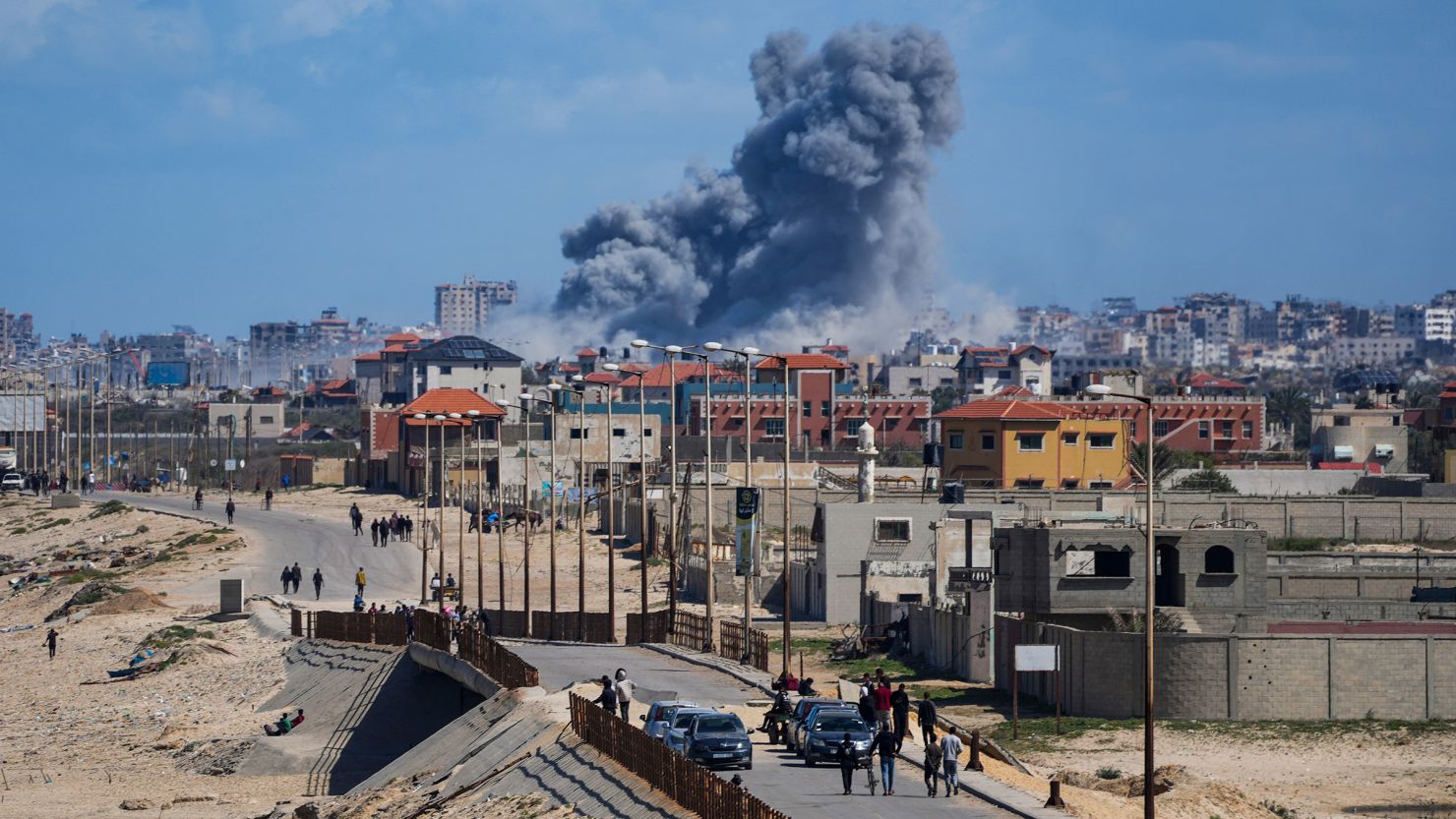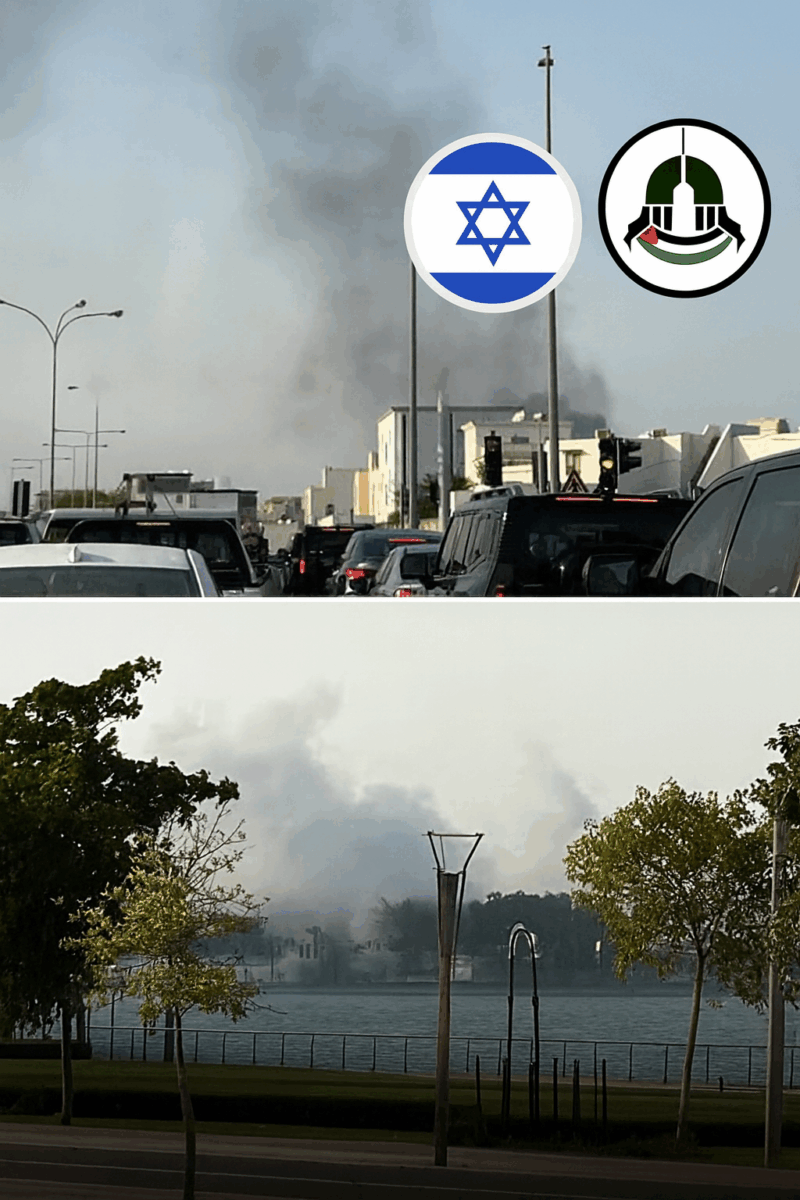Israel Launches Strike on Hamas Leaders in Qatar
In a dramatic escalation of Middle East tensions, Israel carried out a military strike in Doha, the capital of Qatar, targeting senior leaders of the militant group Hamas. According to international media, the operation was intended to eliminate key figures in Hamas’ political bureau, including Khalil al-Hayya, a veteran leader and negotiator.
The strike comes at a highly sensitive time, as Qatar has been serving as a key mediator in ongoing ceasefire talks between Israel and Hamas. The sudden attack on Qatari soil has drawn swift and fierce reactions from across the world.
Who Was Targeted in the Strike?
Reports indicate that Khalil al-Hayya, a senior Hamas official and negotiator, was among the primary targets of the Israeli strike. Al-Hayya has long played a central role in Hamas’ leadership, first in Gaza and later in its international operations based in Doha.
Other Hamas officials were also believed to be present in the targeted area. While details remain unclear, eyewitnesses reported explosions and heavy smoke rising near central Doha, sending shockwaves through the normally quiet capital.
Qatar Condemns the Attack
The government of Qatar immediately condemned Israel’s actions, calling the strike a “blatant violation of international law and Qatari sovereignty.” Officials described the attack as an unacceptable escalation that undermines the stability of the entire region.
Qatar, which hosts U.S. military bases and maintains relations with both Western powers and regional actors, now faces a complex diplomatic crisis. Its role as a mediator between Israel and Hamas could be seriously jeopardized by this unprecedented strike on its territory.

International Reactions
The global response was swift.
-
United Nations Secretary-General António Guterres expressed deep concern and urged restraint, warning that the incident could derail efforts toward a ceasefire and peace negotiations.
-
Arab League nations, including Egypt and Jordan, condemned Israel’s actions and called for an emergency summit to discuss the attack.
-
United States officials, while reaffirming Israel’s right to self-defense, expressed unease about the strike being carried out in Qatar, a close American ally.
This marks the first time Israel has openly targeted Hamas leaders inside Qatar, a country that has often acted as a middle ground for regional diplomacy.
Why Israel Struck in Qatar
Analysts suggest that Israel’s strike was motivated by both security concerns and political pressure. Earlier reports indicated Hamas operatives in Gaza carried out deadly attacks in Jerusalem, prompting Israel’s leadership to respond forcefully.
By striking Hamas leaders abroad, Israel is sending a message that no safe haven exists for those it deems responsible for terrorism. However, the decision to launch the strike in Qatar — rather than Gaza, Lebanon, or elsewhere — is seen as a bold and risky move that could have far-reaching consequences.
Implications for Regional Stability
The Israel strike on Hamas leaders in Qatar could destabilize the fragile balance in the Middle East.
-
Ceasefire talks: Qatar has been mediating negotiations between Hamas and Israel. The attack may derail these talks entirely.
-
U.S.-Qatar relations: As a major non-NATO ally hosting American military bases, Qatar is crucial to U.S. strategy. Washington must now balance support for Israel with protecting its Qatari partnership.
-
Broader conflict: Arab nations fear that Israel’s bold action could trigger wider conflict and undermine chances for peace.
Conclusion
The strike on Hamas leaders in Doha marks a turning point in the Middle East conflict. Israel’s decision to target militants on Qatari soil highlights its determination to confront Hamas, but also raises serious questions about international law, diplomacy, and the potential for escalation.
As the world watches closely, the coming days will determine whether this incident becomes a trigger for broader war or a catalyst for renewed diplomatic efforts. For now, the Israel strike on Hamas leaders in Qatar remains one of the most shocking and consequential events in recent years.


